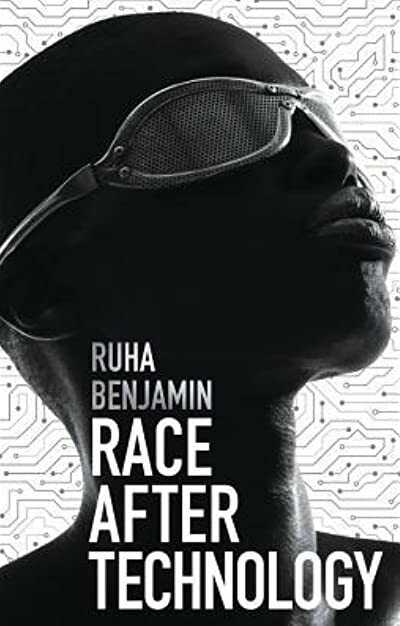Conference/BOOKS (Polity Press): why there is a plenitude of publications about AI and data but not about race?
Two more interesting and timely books at the Polity Press exhibit deserve quick mentioning. Data Selves: More-than-Human Perspectives focuses on how people make sense of the plentiful of "their" digital data; Pandemic Surveillance is a timely exploration of how the global pandemic has utilised digital technologies in public health and what are their implications for privacy, ethics of care and data justice.
..As I leave the conference and its book exhibits, I cannot help but notice the plenitude of books on AI and data, but not about race - and I remember André Brock's opening keynote, entitled "Race and Racism in internet studies". In it, he storytold how he avoided using "race" in titles of his work submitted to internet studies conferences and events. Work on "race" was far less likely to get accepted - and thus seen in internet studies conferences. In his own words, race is not keywords, but race s everywhere.
Polity Press' book stall has one (!) new book on race - and this book is an absolute must. Race After Technology: Abolitionist Tools for the New Jim Code addresses the "subtle but no less hostile form of systemic bias" (p.x) - racism in the age of wide-spread digitisation and big data, or what the author, Ruha Benjamin, calls "The New Jim Code" (a gesture to Jim Crow which has become "an academic shorthand for legalised racial segregation, oppression and injustice in the US South between the 1890s and the 1950s" (p. 9). The New Jim Code refers to "the employment of new technologies that reflect and reproduce existing inequities but that are promoted and perceived as more objective or progressive than the discriminatory system of a previous era" (p. 5-6).
Benjamin maps the relations between computer coding and the racial code; between racist bias embedded into tech design and its impact on mundane, "small" everyday moments; between private industry and public policy decisions; between technology's assumed "colour-blindness" and the ways in which racial bias is encoded into how technology normalises whiteness and "sees" racial difference; and between explicit anti-Blackness of digital technologies and their harm which extends beyond those coded Black - and how understanding that is fundamentally different from arguing that technology affects everyone in the same way. Finally, Benjamin introduces the term "race critical code studies", to open up (and ultimately, undo) the "Anti-Black Box" of technology - Benjamin's take on critical scholarship that unpacks the hidden, "black-box" nature of many technologies such as algorithms, which are seen as race neutral but are discriminatory by design, "to draw attention to the routine anti-Blackness that inheres in so much tech development" (p. 33).
What I call the anti-Black box links the race-neutral technologies that encode inequity to the race-neutral laws and polities that serve as powerful tools for White supremacy (p. 34).
Race After Technology is a winner of the ASA Section on Racial and Ethnic Minorities Oliver Cromwell Cox Best Book Award 2020; a winner of Brooklyn Public Library's Literary Prize for Nonfiction 2020; and was wwarded Honorable Mention in the ASA Communication, Information Technologies, and Media Sociology Section's Book Award 2020.
The book as a free companion teaching resource created by Rachael Zafer, containing detailed questions and exercises for discussion of different aspects of the book.


